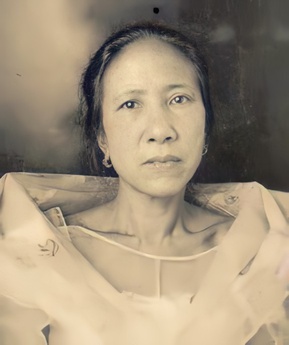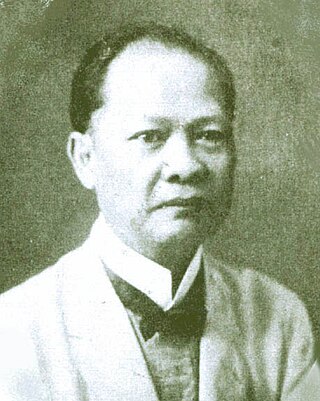
Tropical medicine is an interdisciplinary branch of medicine that deals with health issues that occur uniquely, are more widespread, or are more difficult to control in tropical and subtropical regions.

The global pandemic of HIV/AIDS began in 1981, and is an ongoing worldwide public health issue. According to the World Health Organization (WHO), by 2023, HIV/AIDS had killed approximately 40.4 million people, and approximately 39 million people were infected with HIV globally. Of these, 29.8 million people (75%) are receiving antiretroviral treatment. There were about 630,000 deaths from HIV/AIDS in 2022. The 2015 Global Burden of Disease Study estimated that the global incidence of HIV infection peaked in 1997 at 3.3 million per year. Global incidence fell rapidly from 1997 to 2005, to about 2.6 million per year. Incidence of HIV has continued to fall, decreasing by 23% from 2010 to 2020, with progress dominated by decreases in Eastern Africa and Southern Africa. As of 2023, there are about 1.3 million new infections of HIV per year globally.

Manila Science High School, colloquially known as MaSci, is a public science high school in the Philippines. It is located at the corner of Taft Avenue and Padre Faura Street in Ermita, Manila. Established on October 1, 1963, it is the first science high school in the Philippines.

Carlos "Caloy" LoyzagayMatute was a Filipino basketball player, coach and politician. He was the most dominant basketball player of his era in the Philippines and is considered as the greatest Filipino basketball player of all time. As a member of the Philippine national team. Loyzaga was a two-time Olympian and led the Philippines to bronze at the 1954 FIBA World Championship, where he was named to the All-Tournament second team.

In 2008, 4.7 million people in Asia were living with human immunodeficiency virus (HIV). Asia's epidemic peaked in the mid-1990s, and annual HIV incidence has declined since then by more than half. Regionally, the epidemic has remained somewhat stable since 2000.

Gregoria de Jesús y Álvarez, also known by her nickname Oriang, was the founder and vice-president of the women's chapter of the Katipunan of the Philippines. She was also the custodian of the documents and seal of the Katipunan. She married Andrés Bonifacio, the Supremo of the Katipunan and President of the Katagalugan Revolutionary Government. She played a major role in the Philippine Revolution. After the death of Bonifacio, she married Julio Nakpil, one of the generals of the revolution. She had one son from Andrés Bonifacio and five children from Julio Nakpil.

The University Belt is the name of a de facto subdistrict in Manila, Philippines, referring to an area that has a significant concentration of major colleges and universities in the city. The districts of Quiapo, Sampaloc, and San Miguel are traditionally considered to be the University Belt, although other clusters of schools that lie along the southern bank of the Pasig River, mostly at the districts of Intramuros and Ermita, as well as the southernmost part of Malate near the city limits are also sometimes included. Each of the colleges and universities found in the district are a short walking distance of each other.
Louie Jon Agustin Sanchez, a poet, fiction writer, critic, and journalist, hails from Flora, Apayao, Philippines. He lives in Novaliches, Caloocan, in Metro Manila.

Julio Nakpil y García was a Filipino musician, composer and a General during the Philippine Revolution against Spain. He was a member of the Katipunan, a secret society turned revolutionary government which was formed to overthrow the Spanish government in the Philippines. His Katipunan adoptive name was J. Giliw or simply Giliw. He was commissioned by Andres Bonifacio, President of the Insurgent Tagalog Republic, to compose a hymn which was intended to become the National Anthem of the Tagalog Republic. That hymn was entitled "Marangal na Dalit ng Katagalugan". Thus, to some, he is remembered as the composer of the first national anthem of the Philippines. He is also a known huge critic of Emilio Aguinaldo.

Ana Theresia "Risa" Navarro Hontiveros—Baraquel is a Filipino politician, community leader, and journalist serving as a Senator since 2016. She previously served as a party-list representative for Akbayan from 2004 to 2010.
The Philippines has one of the lowest rates of infection of HIV/AIDS, yet has one of the fastest growing number of cases worldwide. The Philippines is one of seven countries with growth in number of cases of over 25%, from 2001 to 2009.

Michael Lim Tan is a Filipino medical anthropologist, veterinarian, and writer who is currently a professor at the University of the Philippines Diliman College of Social Sciences and Philosophy. Tan served as the chancellor of UP Diliman from 2014 to 2020.
Niccolo Cosme is a conceptual photographer based in Manila, Philippines. His father is Caesar Colet Cosme, a television writer and director.
Initial events and trends in the discussion of HIV and AIDS in mass media contributed to the stigma and discrimination against those affected with the disease. Later discussion, sometimes led by HIV+ individuals themselves, moved toward advocacy and education on disease prevention and management. The UNESCO report on Journalism Education says, "Well researched television content can create public awareness about HIV prevention, treatment, care and support can potentially influence the development and implementation of relevant policies."
Wilbert Ting Tolentino is a Filipino entrepreneur, restaurateur, philanthropist and a vlogger. Tolentino owns bars, a spas, restaurants and trading business.
This timeline of the presidency of Ferdinand Marcos in the Philippines covers three periods of Philippine history in which Marcos wielded political control. First, it covers the period of Marcos' first two terms—1965 to 1969 and 1969 to 1972—under the 1935 Constitution, as well as the antecedent events which brought Marcos to political power. Second, it covers the period in which Proclamation 1081, which put the entirety of the Philippines under Martial Law, was in force—from September 1972 to January 1981. Lastly, it covers the entirety of the period described as the "Fourth Republic," where the Philippines was governed by the 1973 Marcos Constitution after the formal lifting of Proclamation No. 1081.

Ramon Nazareth Villegas more popularly known as Mon Villegas or Boy Villegas, was a Filipino curator, art historian, jeweler, author, antiquities dealer, and poet. He was best known for chronicling the history of Philippine art and antiquities in various publications in both the Philippines and overseas. Villegas ran his own antique shop called Yamang Katutubo Artifacts and Crafts, which featured Philippine jewelry and antiques that closed on his death in 2017.
The 2002 Letran Knights men's basketball team represented Colegio de San Juan de Letran in the 78th season of the National Collegiate Athletic Association in the Philippines. The men's basketball tournament for the school year 2002-03 began on June 29, 2002, and the host school for the season was San Beda College.











